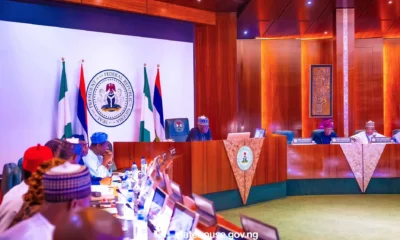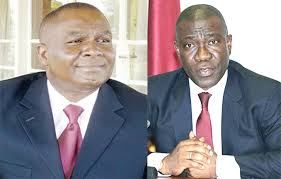Breaking News
FG scraps mother-tongue policy, makes English official language of instruction

The Federal Government has announced that English will now serve as the official language of instruction in all Nigerian schools, effectively cancelling the national policy that made indigenous languages the primary medium of teaching at the foundational level.
Minister of Education, Dr. Tunji Alausa, disclosed this policy shift on Wednesday at the Language in Education International Conference 2025, organised by the British Council in Abuja.
Alausa said the decision was taken to promote uniformity and improve learning outcomes across the country, stressing that evidence showed the excessive use of indigenous languages in classrooms had hindered academic performance.
“English language should be used to teach our students at all levels as a means of instruction. Over the years, mother tongues have been used to teach, and this has largely been responsible for the failures recorded in exams,” he stated.
He added, “The national policy on language has been cancelled. English now stands as the medium of instruction across all levels of education.”
While acknowledging the cultural significance of local languages, the minister said English remained a unifying tool in Nigeria’s multilingual society and a vital instrument for global competitiveness.
He noted that the policy change was data-driven, guided by research showing that the mother-tongue approach contributed to high failure rates in national examinations such as WAEC, NECO, and JAMB.
“Evidence-based governance must prevail over emotional attachment to language,” Alausa said, adding that the new direction would help Nigerian students access international knowledge and technology.
The two-day international conference, themed “Language, Education and Inclusion: Empowering Every Learner,” brought together educators, policymakers, researchers, and development partners from Africa, South Asia, and the United Kingdom.
Discussions centred on advancing equitable and quality education through effective language policies and inclusive classroom practices.
The British Council reiterated its support for inclusive education and language-responsive teaching across Sub-Saharan Africa.
Julian Parry, Director of English Programmes for Sub-Saharan Africa, said, “Language can act as a bridge to inclusion, identity and opportunity for every learner. Sharing evidence, challenges, and successes is key to improving education outcomes globally.”
Similarly, Chikodi Onyemerela, Director of Programmes, British Council Nigeria, reaffirmed the organisation’s commitment to inclusive education in Nigeria.
“We are deeply privileged to be hosted in Nigeria. Since 2015, through our Pan-Ethnic Classrooms Programme, we have developed inclusive pedagogy initiatives that enable teachers to embed inclusive practices in the classroom,” Onyemerela said.
The now-cancelled National Policy on Education had mandated the use of mother tongue or the language of the immediate environment as the medium of instruction at the early stages of schooling, while English was to be introduced later.
With the new directive, all public and private schools are expected to transition fully to English as the primary language of instruction across all levels, from pre-primary to tertiary education.
























